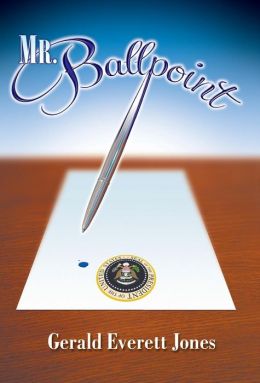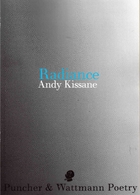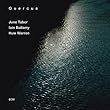The author of the poetry collection Radiance reads a selection of poems from his new book, talks about how the book came together as a collection, its structure and epitaphs, his themes, on being a “cricket poet”, on hanging out with…
A review of Active Literacy Across the Curriculum by Heidi Hayes Jacobs
 As a classroom teacher I read with interest that Hayes notes the fulfilment of that need is complicated by learning standards established at the state level that are written as if all children are confident in standard English usage. Hayes states what teachers have known for years; every standardized test, whether a state or national instrument is principally a reading test. If the test taker is not a skilled reader, with a broad vocabulary filled with standard English words, then the test taker is going to face problems with the language used in the test; including words like determine, summarize, select and more.
As a classroom teacher I read with interest that Hayes notes the fulfilment of that need is complicated by learning standards established at the state level that are written as if all children are confident in standard English usage. Hayes states what teachers have known for years; every standardized test, whether a state or national instrument is principally a reading test. If the test taker is not a skilled reader, with a broad vocabulary filled with standard English words, then the test taker is going to face problems with the language used in the test; including words like determine, summarize, select and more.
A review of Mr Ballpoint by Gerald Everett Jones

A review of Landslides, Slumps, & Creeps by Robert Goodwin
 While this book is not one most first grade students might read, the pictures added to the text, news accounts on television and recent tremors we have experienced in Oklahoma have heightened Osage County First Grade interest in all things to do with earth movements, slumps, slides, quakes and all.The book presents opportunities for discussion, and is helping to ease the worry my students have begun to develop.
While this book is not one most first grade students might read, the pictures added to the text, news accounts on television and recent tremors we have experienced in Oklahoma have heightened Osage County First Grade interest in all things to do with earth movements, slumps, slides, quakes and all.The book presents opportunities for discussion, and is helping to ease the worry my students have begun to develop.
A review of Radiance by Andy Kissane
 Though the poems in Radiance are powerful and hard-hitting – making the familiar new, and challenging the reader’s perspective, the entire collection is suffused with warmth that continues to charm, even when we’re reading about horror. These are poems that, regardless of theme, remain unabashedly positive, at times, extremely funny, and inviting, even as they’re undermining our prejudices.
Though the poems in Radiance are powerful and hard-hitting – making the familiar new, and challenging the reader’s perspective, the entire collection is suffused with warmth that continues to charm, even when we’re reading about horror. These are poems that, regardless of theme, remain unabashedly positive, at times, extremely funny, and inviting, even as they’re undermining our prejudices.
A review of Penny From Heaven by Jennifer Holm
 Holm has intertwined a delightful narrative within a story. On the one hand the reader spends the summer and autumn with Penny Falucci and her loving and fun loving extended family. Penny’s maternal relatives are home, Mom and apple pie American with Penny, Me-Me, Pop-Pop and Mom. While Penny’s Falucci relatives encompass many uncles, aunts, cousin and Nonny-Grandma is the pillar of the family.
Holm has intertwined a delightful narrative within a story. On the one hand the reader spends the summer and autumn with Penny Falucci and her loving and fun loving extended family. Penny’s maternal relatives are home, Mom and apple pie American with Penny, Me-Me, Pop-Pop and Mom. While Penny’s Falucci relatives encompass many uncles, aunts, cousin and Nonny-Grandma is the pillar of the family.
Folk Singer June Tabor with saxophonist Iain Ballamy and pianist Huw Warren in the trio Quercus
 After the opening by saxophone and piano, in the jazz interpretation of Mack Gordon’s “This Is Always,” the singing is first somber then light. “This is love / The real beginning of forever / This isn’t just mid-summer madness,” sings Tabor. The fast pace of the musical accompaniment recurs—excitement, improvisation. A dramatic recitation is made of David Ballantine’s “A Tale from History (The Shooting),” which could be about love or revolution or both, with sudden changes of fate, ambition, and betrayal, death, and regret.
After the opening by saxophone and piano, in the jazz interpretation of Mack Gordon’s “This Is Always,” the singing is first somber then light. “This is love / The real beginning of forever / This isn’t just mid-summer madness,” sings Tabor. The fast pace of the musical accompaniment recurs—excitement, improvisation. A dramatic recitation is made of David Ballantine’s “A Tale from History (The Shooting),” which could be about love or revolution or both, with sudden changes of fate, ambition, and betrayal, death, and regret.
A review of Dreaming for Freud by Sheila Kohler
 Stylistically, Kohler makes excellent use of interior monologue, alternating between Freud and Ida. The novel is presented in a poetic, intimate way that encourages readers’ intense emotional involvement. Kohler also makes effective use of “flashes forward”, interrupting the present of the story to provide tidbits of information about the characters’ futures. The novel is suspenseful. We wonder: Will the young woman give in to Freud, or will she assert her own interpretation of her feelings? What becomes of her and the adults who poisoned her teenage years?
Stylistically, Kohler makes excellent use of interior monologue, alternating between Freud and Ida. The novel is presented in a poetic, intimate way that encourages readers’ intense emotional involvement. Kohler also makes effective use of “flashes forward”, interrupting the present of the story to provide tidbits of information about the characters’ futures. The novel is suspenseful. We wonder: Will the young woman give in to Freud, or will she assert her own interpretation of her feelings? What becomes of her and the adults who poisoned her teenage years?
Traveling through Modern African Sounds: Silt by Alsarah and the Nubatones
 “Traveling is one of the most inspiring experiences for me, and so to have been able to travel all over north and east Africa so much recently has been like a blast of fresh air. The best part about being an immigrant (which I consider myself still) is going home and seeing it with an outsider/insider eye… it teaches you more about yourself and your assumptions of who and what your people are, than anything else possibly could,” said the marvelous Alsarah to Addis Rumble’s writers Andreas Hansen and Karen Obling for the newspaper The Guardian/Guardian African Network (September 24, 2013).
“Traveling is one of the most inspiring experiences for me, and so to have been able to travel all over north and east Africa so much recently has been like a blast of fresh air. The best part about being an immigrant (which I consider myself still) is going home and seeing it with an outsider/insider eye… it teaches you more about yourself and your assumptions of who and what your people are, than anything else possibly could,” said the marvelous Alsarah to Addis Rumble’s writers Andreas Hansen and Karen Obling for the newspaper The Guardian/Guardian African Network (September 24, 2013).
A review of Barracuda by Christos Tsiolklas
 Danny’s growth process through Barracuda raises questions about the nature of what it means to be a ‘good’ and self-fulfilled person, about marginality and the politics of difference – in terms of race, sexuality, and capability, about notions of ‘home’ and nationality (and not only with respect to migrants, though the migrant perspective is strong), how we make meaning in our life even when our dreams falter, the notion of privilege, and questions of class. All of these things are handled subtly and powerfully, through dichotomies that play out naturally through the course of the narrative.
Danny’s growth process through Barracuda raises questions about the nature of what it means to be a ‘good’ and self-fulfilled person, about marginality and the politics of difference – in terms of race, sexuality, and capability, about notions of ‘home’ and nationality (and not only with respect to migrants, though the migrant perspective is strong), how we make meaning in our life even when our dreams falter, the notion of privilege, and questions of class. All of these things are handled subtly and powerfully, through dichotomies that play out naturally through the course of the narrative.